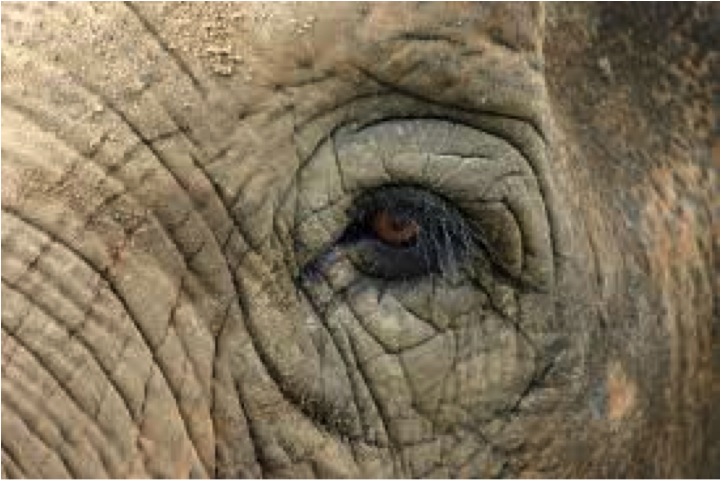by Deb Halliday – April 24, 2014
Keynote presentation, Title I Conference – Billings, Montana
Thank you for inviting me – we have some of the best folks at OPI working with you right here in this room. I am honored to be here. I also want to share with you my deep pleasure in having my daughter Mae here – she is a 7th grader at Helena Middle School, and it is National Take our Daughters and Sons to Work Day, so I have taken her on the road with me.
Later on today State Superintendent Denise Juneau and I will be opening our statewide Student Advisory Board meeting at the Yellowstone Art Museum. The theme is student voice in civic life. We will learn from high school students across the state what public policy issues are of greatest concern to them, and how well they feel our schools and our communities are equipping them to make a difference in their lives. I look forward to learning from them.
THE STORY OF ME IN TWO MINUTES
I was born in upstate New York – a landscape of cornfields and Finger Lakes – into a family that for generations were either teachers, or preachers. I think that is how I came to believe that public education is one of the most effective ways to transform individuals’ lives, and communities. You see, teaching and preaching have in common a belief that we can grow beyond our personal boundaries and obstacles, we can reach, through hard work and discipline and vision, to a better life for ourselves and for our loved ones.
Both of my grandmothers worked in elementary schools. My grandmother, Lolo, was a kindergarten teacher in Brooklyn, New York, where she’d take her kids out to the pier and give them plastic bags so they could catch the breeze and bring it home to their parents at the end of the school day. My mother’s mother, Christina, was the school secretary, and so I learned at a young age that no means no and that lack of preparation on my part did not constitute an emergency on her part.
For the past three years, I have been fortunate to lead one of State Superintendent Denise Juneau’s top priority initiatives, Graduation Matters Montana.
GRADUATION MATTERS MONTANA
Please, raise your hand if you have heard of Graduation Matters Montana. Keep your hand raised if you live in a community that has a GMM initiative. And keep your hand raised if you are involved with your local GMM work.
You see, I believe that each and every one of you are involved with Graduation Matters Montana, whether you live in a community that has a GMM community, or not. Whether you serve on a local GMM team, or not.
Because we all, through our commitment to being in children’s lives, and through our dedication to working in education, are involved in helping students graduate from high school, and we are helping them to be excited about their next steps in life.
RESEARCH SAYS
Research into why students drop out tells us that students need academic integration – students are aware of their own academic strengths, are actively engaged in relevant learning experiences, and share responsibility for their education with a caring adult; and social integration – students have a strong sense of belonging to school life through involvement with one or more social groups or through connections made by caring adults, and have a voice in appropriate school administrative decision making.
Students must have both academic and social integration. It’s not enough to excel in math and be spit on in the halls. Nor is it enough to be great at track and be failing science. Here in Montana, about 80 percent of our students find their way through the schools we’ve created, but one in five do not.
Graduation Matters encourages schools and community partners to slow down and to be curious about students who are not thriving in our schools. We then develop targeted interventions to increase the number of students who can find that academic and social integration.
So after three years of our work together with over forty local GMM initiatives, we are seeing increased concentration on peer to peer relationships, credit recovery, student voice, Freshman transitions, and increased discussions of how within and beyond the school grounds we can connect students to that central fire of imagination and ambition.
FIVE ESSENTIAL LESSONS OF GMM
In our time together today, I am going to talk with you about five essential lessons we have learned in our work with Graduation Matters Montana.
ESSENTIAL LESSON #1: COMMON VALUES
We are more similar than we are different. Did you know that we share 99% of our DNA with the snail? If we have that much in common with such a lowly creature, how different can we each be from one another?
As I like to say, no one is pro-dropout. We have, among us, in every community in our state, a tremendous overlap of interests and concerns – concerns for a safe and healthy community, concerns for families to grow strong and children to have opportunities to thrive.
And so the first step of a Graduation Matters initiative is to bring people together. GMM invites people to connect around their shared values of community, family and place. That is why over 250 new community and business partnerships were started through GMM last year. That is why Main Street businesses from Kawasaki dealerships to print shops to coffee houses are placing Graduation Matters posters in their windows, and opening up career exploration opportunities to high school students.
Graduation Matters brings together people with different experiences and understandings of our challenges, and that is a real strength of our work.
ESSENTIAL LESSON #2: DIFFERING PERSPECTIVES
Do you remember the old tale of the blind men, who come upon an elephant, and argue over what it is they have found? “It’s wide, and soft and floppy!” says the man who is touching the elephant’s ear. “No no! It is hard and sharp and cool.” Says the man beside a tusk. “You are both wrong,” says a third, who is clasping the elephant’s tail. “It is narrow like a whip, and coarse.”
Of course, they are all right. And yet, they are all incomplete in their understanding of the beast. It is only through careful discovery and conversation that they may begin to understand the whole picture – to gain a richer understanding of the complexity of their situation.
This too is an essential lesson of Graduation Matters Montana. We none of us – school administrators, students, community members, certainly not OPI officials in Helena – can fully understand the challenges of students not thriving in our schools. It is only through bringing together people with different perspectives and experiences that we can begin to understand more fully that which we seek to understand.
And then a beautiful thing happens. We begin to not only more fully comprehend our challenges, but we begin to open up whole new ways of thinking about solutions. One of the best examples of this came from Graduation Matters Hardin.
ESSENTIAL LESSON #3: TIME
The next lesson we’ve learned is one is about TIME. (Meetings, rushing, rapid racing pace…) I believe that more so than money or new computers or new programs or services, our most precious resource in this work is TIME. We need time to think, to reflect, to make sense of what we’re learning and to connect with one another in real, meaningful conversations. We need TIME.
Graduation Matters Montana creates a place to slow down time. We come together as busy people, and we slow it down. We talk about what the challenges are to graduating all students, we talk about what tremendous successes we see everyday, we celebrate.
The second step of GMM is to look at your data, qualitative and quantitative, and go into what I call the “mode of inquiry”. It is a time for educators, students, and the people I call the “non-educators” – community members, Main Street business owners, etc – to come together and engage more deeply to understand the experience of students who are not thriving in our schools and communities, and to build together renewed strategies for impact.
When we convene for our annual GMM Summer Summit, we build the whole day around creating time for people to talk, to share ideas, brainstorm one another’s challenges. We create time to think and time to reflect.
The next thing that we have learned is that:
ESSENTIAL LESSON #4: WE WANT TO MAKE A DIFFERENCE
I believe people are willing to and are even hungry to come together to have rich conversations, and to share different perspectives. We all want – at the core of our being – to make a difference. I believe that in the very make-up of what it is to be human, to have humanity, is our desire to make a difference, to know that the work we put in and the time we invest – the sleepless nights, the tears of victory and the tears of defeat – that all of that somehow matters. That we matter. We want, at the core, to be known, and to been seen.
Graduation Matters Montana honors that desire to make a difference. To have an impact. We’ve seen it again and again – when good people come together, share in honest and respectful conversation, look at their data and remain curious about both the problems and the solutions: change happens. Example: Graduation Matters Livingston.
ESSENTIAL LESSON #5: RELATIONSHIPS
Which leads me to my final point. This work is all about relationships. As a colleague of mine says, partnerships move at the speed of trust.
And in order to build trust, I believe you have to go slow to go fast. You have to go slow, to go fast. You have to go slow, to go fast. If trust is there, any obstacle becomes something we can all put our shoulder to. But if trust is not there, any multitude of excuses are easy to find as to why something isn’t possible.
This work is hard. There are times of failure and times of success, the stakes are huge for the children we teach, and for the communities we live in and love. We need to take risks, which opens up more potential for failure.
IN CLOSING
And so we need to trust. To go slow, to take time, to connect around shared values, and to know that all we’ve worked for, all we believe in, is not for naught.
Please join us at the GMM Summer Summit, Tuesday June 17, 2014 in Bozeman, Montana. Join our work and our community of people learning from one another about what is having an impact, and how we can, working together, achieve ever more for our children.
Thank you.

